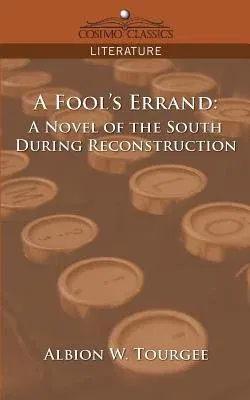Albion Winegar Tourgee
(Author)A Fool's Errand: A Novel of the South During ReconstructionPaperback, 1 November 2005

Qty
1
Turbo
Ships in 2 - 3 days
In Stock
Free Delivery
Cash on Delivery
15 Days
Free Returns
Secure Checkout
Part of Series
Cosimo Classics Literature
Print Length
408 pages
Language
English
Publisher
Cosimo Classics
Date Published
1 Nov 2005
ISBN-10
1596055995
ISBN-13
9781596055995
Description
Product Details
Author:
Book Format:
Paperback
Country of Origin:
US
Date Published:
1 November 2005
Dimensions:
20.32 x
12.7 x
2.31 cm
ISBN-10:
1596055995
ISBN-13:
9781596055995
Language:
English
Location:
New York, NY
Pages:
408
Publisher:
Series:
Weight:
439.98 gm

